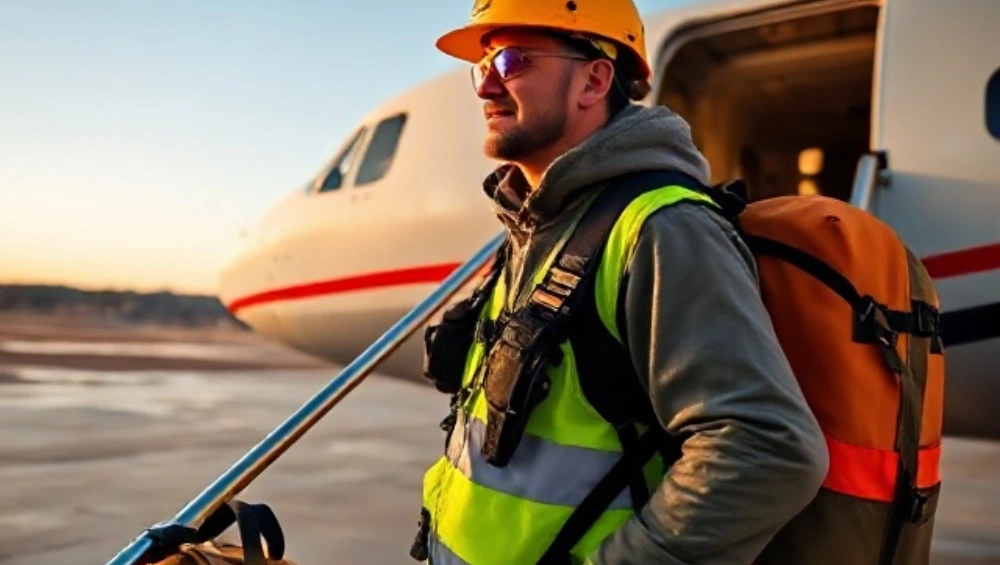What Are FIFO Jobs and How Do They Work?
FIFO stands for Fly-In Fly-Out. It’s a work arrangement where employees fly to remote job sites, work for several weeks, then fly home for time off. Companies like Rio Tinto, BHP, and Fortescue Metals Group use this system because their mines are located far from major cities.
The most common FIFO roster patterns include 2/1 (two weeks on, one week off) and 8/6 (eight days on, six days off). Some workers prefer longer rotations like 4/1 or even 3/1 schedules. During work periods, employees live in mining camps with shared accommodation, meals provided, and recreational facilities.
FIFO work exists mainly in the mining, oil, and gas industries. Companies need skilled workers but can’t build entire cities around remote operations. So they fly workers in from Perth, Brisbane, Darwin, and other major hubs. The system works for both employers and employees who want high wages without permanently relocating to places like Newman or Moranbah.
How Much Can You Earn in FIFO Jobs?
Money talks. And fifo jobs definitely pay well. Here’s what different roles typically earn:
High-Paying FIFO Roles:
- FIFO electrician: $120,000 – $180,000
- FIFO mechanic: $100,000 – $150,000
- FIFO engineer: $130,000 – $200,000
- FIFO driller: $110,000 – $160,000
- FIFO crane operator: $95,000 – $140,000
Entry-Level Opportunities:
- FIFO cook/chef: $70,000 – $110,000
- FIFO housekeeping: $60,000 – $85,000
- FIFO truck driver: $80,000 – $120,000
But wait, there’s more! Overtime rates often pay double time. Plus allowances for meals, accommodation, and travel. Many workers see their actual earnings jump 20-30% above base salary. Companies like Woodside Energy and Santos Ltd also offer bonuses and profit-sharing schemes.
The Australian Workers Union reports that FIFO salary averages have increased 15% since 2023. With worker shortages in mining towns like Kalgoorlie and the Goldfields region, demand keeps pushing wages higher.
Is the FIFO Lifestyle Right for You?
The FIFO lifestyle isn’t for everyone. But for the right person, it can be life-changing.
The Good Stuff: Your travel is 100% paid. Companies handle flights, accommodation, and meals. You’ll experience career growth faster than in city-based roles. Many workers use their time off to travel, study, or start businesses. The money lets you pay off mortgages quickly and build serious wealth.
The Tough Parts: Long shifts are normal – often 12 hours daily. You’ll miss birthdays, anniversaries, and family events. Social isolation hits hard, especially in remote locations like the Northern Territory mines. Some sites have limited phone coverage and slow internet.
FIFO work-life balance requires serious planning. Successful workers create routines for both work periods and time off. They stay connected with family through video calls and make the most of their roster breaks. Beyond Blue research shows that workers with strong support systems adapt better to FIFO challenges.
How Do FIFO Jobs Affect Mental Health and Families?
Let’s be real – FIFO mental health is a serious issue. The isolation, long shifts, and time away from loved ones take a toll. Studies linked to former PM Scott Morrison’s mental health initiatives found higher rates of depression and anxiety among FIFO workers compared to regular employees.
Family relationships face unique pressures. Partners handle everything alone during work periods. Kids miss having a parent around consistently. FIFO Families, a support organization, reports that communication and realistic expectations are crucial for success.
But support is available. Beyond Blue offers specialized FIFO counseling services. Many companies now provide wellness programs and mental health first aid training. Organizations like the CFMEU push for better worker support and reasonable rosters.
The key is recognizing warning signs early. Loneliness, mood changes, and relationship strain are common. Workers who access support services and maintain strong connections typically handle FIFO challenges better.
Where to Find FIFO Jobs in Australia Today?
Ready to explore fifo jobs? Here’s where to start your search:
Job Boards:
- SEEK Jobs (the largest database of Australian positions)
- Indeed Jobs (international and local opportunities)
- LinkedIn Jobs (professional networking advantage)
Major Employers: Companies like Glencore, Newcrest Mining, and Alcoa regularly hire. Check their career pages directly. Chevron Australia and Origin Energy also offer opportunities in the oil and gas sectors.
Recruitment Agencies: Specialized FIFO recruitment agencies understand the industry. They can match your skills with suitable rosters and locations. Many focus on specific trades like FIFO welders or FIFO nurses.
Don’t forget entry-level options! FIFO apprenticeships and training programs help newcomers break into the industry. Even without experience, positions like FIFO housekeeping or camp support roles provide stepping stones to higher-paying jobs.
Conclusion
FIFO jobs offer incredible earning potential and unique career opportunities. But they’re not easy money. The lifestyle demands sacrifice, strong mental health awareness, and solid support systems.
For workers who thrive on adventure, value financial freedom, and can handle isolation, fifo jobs can be life-changing. The key is going in with realistic expectations and proper preparation.





